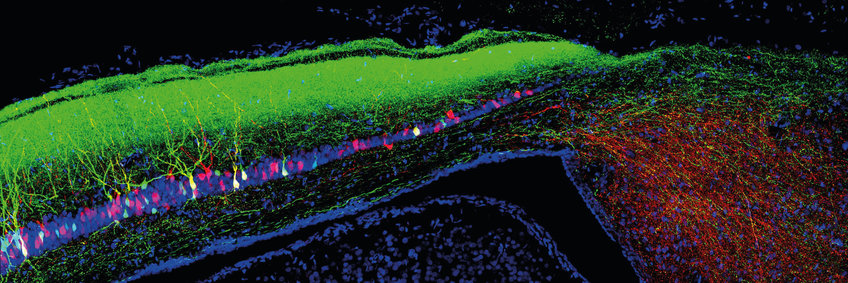
Neural Dynamics and Evolution
Our lab is interested in revealing principles and mechanisms that govern neural systems function, natural behavior, and evolution. To do this, we study select organisms because of their unique traits and adaptations, respective position on the phylogenetic tree, and relative simplicity. We emphasize quantitative methods and take advantage of a diversity of experimental approaches and modern tools that facilitate mechanistic studies in unconventional model systems like reptiles, ranging from molecular/genetic and neurophysiological techniques to quantitative behavior and computational analysis.
An area of particular interest is the study of brain activity that is generated internally, during periods of sleep, and to functionally relate these dynamics – often spanning multiple spatio-temporal scales – to mnemonic and perceptual phenomena. For example, we recently discovered competitive interactions between the two brain hemispheres of sleeping lizards, dependent on ancient brainstem circuits implicated in visual processing, attention and gaze control. We are exploring the precise mechanisms of this inter-hemispheric competition and its functional significance, during sleep and awake behavior like hunting or social interactions. Overall, our approach is geared towards uncovering mechanisms, functions and evolutionary aspects of sleep, as well as ill-understood circuit operations that underlie cognitive processes and, ultimately, flexible behavior in constantly changing environments.